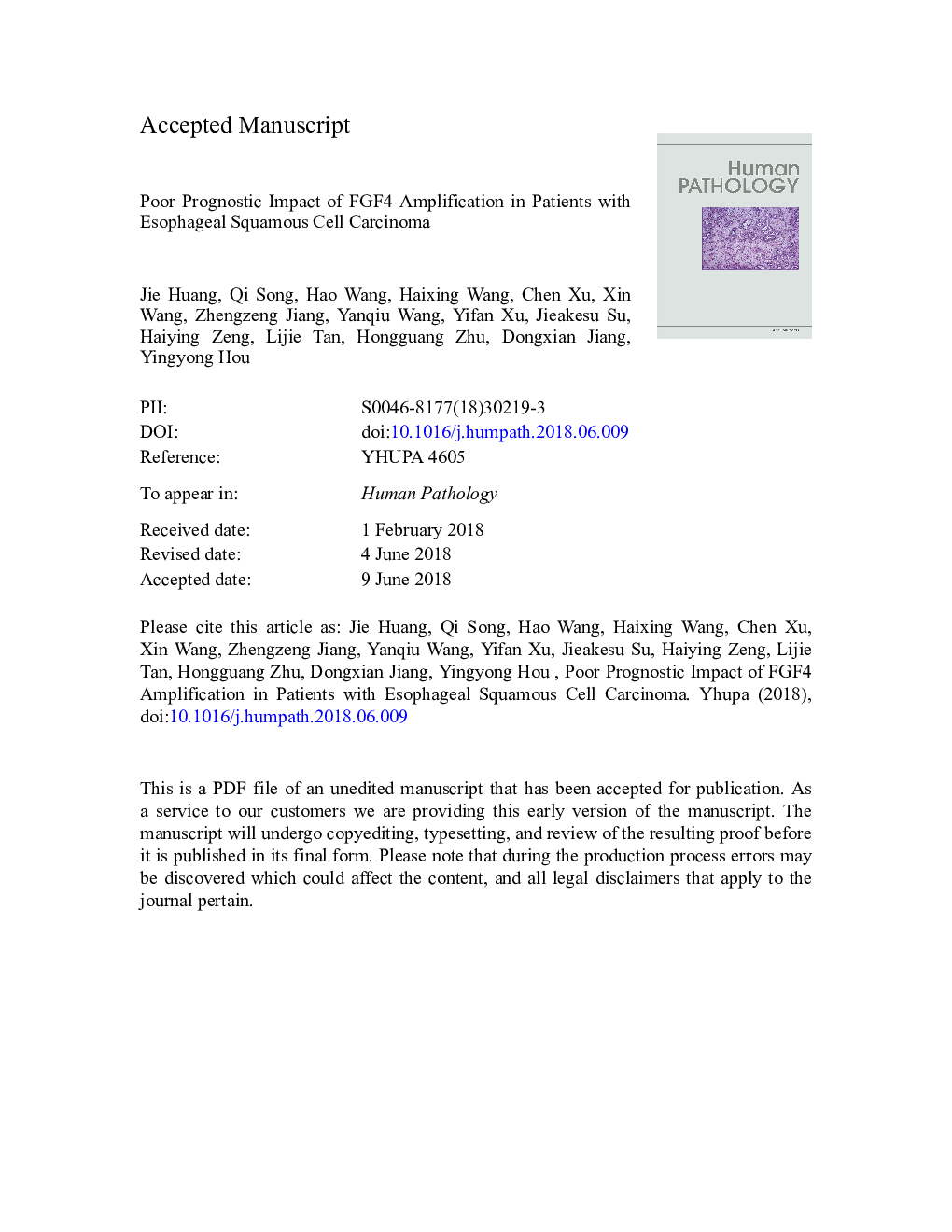| Article ID | Journal | Published Year | Pages | File Type |
|---|---|---|---|---|
| 10091020 | Human Pathology | 2018 | 24 Pages |
Abstract
In the present study, we aimed to determine the prognostic impact and clinicopathological feature of FGF4 amplification in patients with esophageal squamous cell carcinoma (ESCC). Fluorescence in situ hybridization with FGF4 probe was analyzed using tissue microarray consisting of representative cores of 267 ESCC cases. FGF4 amplification was observed in 52.8% (141/267) of patients. Patients with FGF4 amplification showed a significantly shorter disease-free survival (DFS) or disease-specific overall survival (OS) compared with those without FGF4 amplification (both P < .05). Moreover, FGF4 amplification was an independent prognostic factor (DFS, P = .036; OS, P = .021) along with clinical stage and lymph node metastasis in multivariate analysis. Among stage I-II or III patients whose DFS was greater than or equal to 24 months (n = 125 or 32), patients with FGF4 amplification showed a significantly worse prognosis (OS, P = .027 or P = .010). Moreover, the survival curve of stage I-II patients with FGF4 amplification was identical to stage III patients without FGF4 amplification (DFS, P = .643; OS, P = .707). Taken together, FGF4 amplification was an independent prognostic factor in ESCC patients, and ESCC might have potentially been upstaged by FGF4 amplification. Therefore, FGF4 amplification in combination with clinical stage could be used as a relatively accurate predictor for the 5-year probability of death and recurrence for ESCC patients.
Keywords
Related Topics
Health Sciences
Medicine and Dentistry
Pathology and Medical Technology
Authors
Jie MD, Qi MD, Hao MD, Haixing MM, Chen PhD, Xin MM, Zhengzeng MM, Yanqiu MM, Yifan BS, Jieakesu BS, Haiying BS, Lijie PhD, Hongguang MD, PhD, Dongxian MM, Yingyong MD, PhD,
